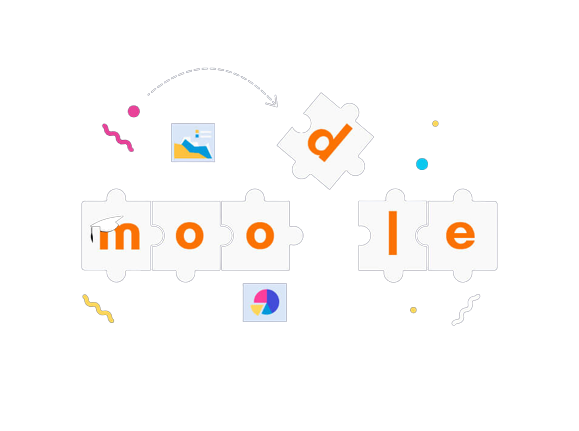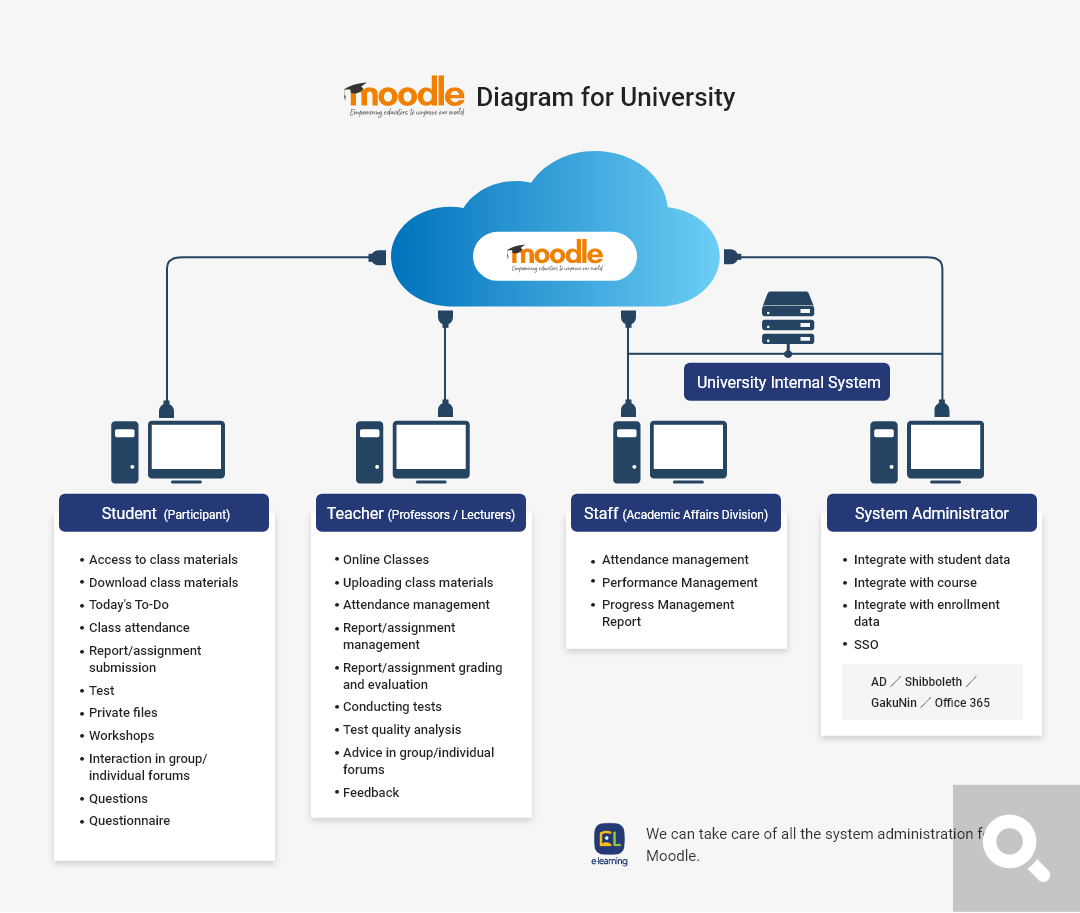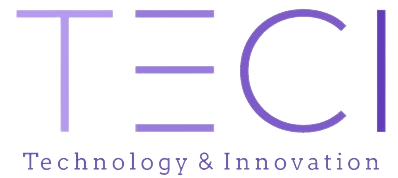Moodle for eLearning
Moodle is an open-source learning management system (LMS) designed to help educators create online courses and e-learning websites. It was first developed by Martin Dougiamas in 2002 and has since become one of the most popular LMS platforms in the world. Moodle is used by educational institutions, corporations, and non-profit organizations to deliver educational content and track student progress. The platform allows educators to create and manage courses, assign homework, grade assignments, hold online discussions, and more. Moodle is highly customizable and supports a wide range of plugins and themes to extend its functionality and appearance.

Why Is Moodle Necessary for E-Learning?
In today’s digital edge, many companies have adopted LMS, and the trend shows it accelerating further. The market is soaked with numerous LMS applications, and it is important to pick the right LMS development partner to handle your eLearning training programs. Compared to traditional classrooms, LMS offers substantial benefits; learning isn’t limited to a classroom with a teacher presenting the course to all the students. LMS allows learning at your own pace. They empower learners to master one concept at a time before proceeding to the next level. There are other significant advantages that learners are not restricted to the physical classrooms; they can learn anywhere, anytime, at their convenience.
Customization and Flexibility
Moodle’s exceptional versatility enables for the smooth integration of extra plugins and features into its core system, which has resulted in a loyal user community of over 130 people. A variety of Moodle plugins have been produced by its managers, learners, and developers to enhance the interactive and collaborative character of these e-learning systems.
Reliability
Moodle has experienced multiple modifications throughout the course of its history, owing to the collaborative efforts of its community and partners. With a capable back-end staff in charge, this open-source project includes new features on a regular basis to meet the changing demands of the training community and learners.
Community Support
Moodle as an LMS is a logical choice, considering its global community of enthusiastic educators and professionals dedicated to enhancing the online learning experience. These folks update the open-source code on a regular basis to reflect user input and requirements. Moodle developers may also publicly converse and exchange ideas about plugins and new features on the forum. Moodle is widely used by corporations, enterprises, hospitals, and non-profit organizations for online learning, training, and even some commercial activities.
Analytics
Moodle provides the ability to monitor course competencies, competitions, and compliance, which proves beneficial for general employee promotions or succession planning. In addition, Moodle analytics features a diagnosis of learning engagement and progress, as well as the ability to predict learning progress.
Integration
It is simple to integrate Moodle with your existing education and business software solutions, such as Salesforce, G-suite, Microsoft Office, Library Systems, Student Information Systems, and others. Furthermore, it is feasible to interface with performance management and human resource management portals in order to exchange data across platforms and eliminate interventions.
Ease of Access
The flexible design of the Moodle LMS allows content to adjust to different screen sizes, whether on mobile, desktop, or tablet devices. Because of its versatility, it is simple to use on smartphones, allowing mobile learning. Furthermore, users want social connection, and Moodle-based LMS platforms guarantee that the appropriate elements, such as multiple discussion boards to stimulate participation, are engaged.
Data Science Technologies

Advantages Of Moodle
The enormous number of available learning resources is one of the primary benefits of using an LMS backed by one of the world’s largest open-source teams. Users may interact with other Moodle users and get answers to their queries by engaging in Moodle’s Community Forums, which improves the overall learning experience.

